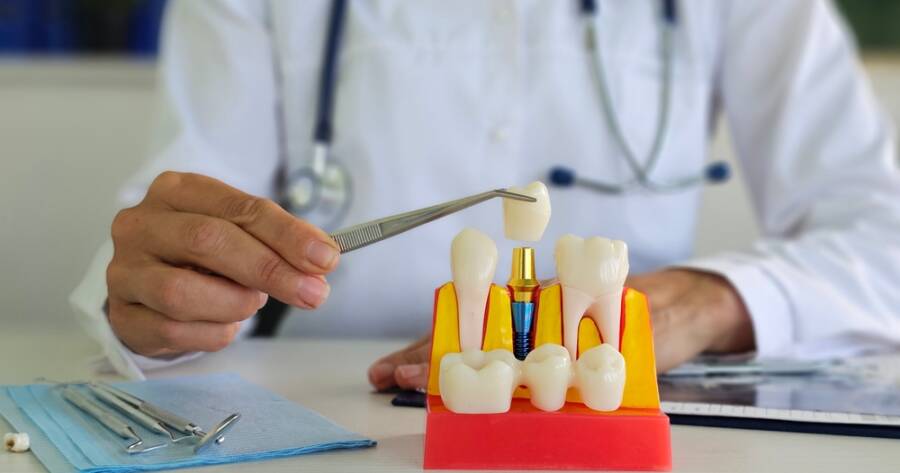Full-mouth dental implants have become an increasingly popular solution for individuals who have lost most or all of their teeth due to age, injury, or medical conditions. This treatment option offers a permanent, natural-looking solution that improves both functionality and aesthetics. However, with such a significant investment, it’s essential to understand the costs and what to expect from the procedure. Explore the pricing of full-mouth dental implants, what the procedure entails, and how to prepare for the best possible outcome.
What Are Full-Mouth Dental Implants?
Full-mouth dental implants are a comprehensive solution that involves replacing all the teeth in the upper and/or lower jaw with dental implants. Instead of individual implants for each missing tooth, this treatment typically uses a series of strategically placed implants to support a full set of teeth. The procedure involves the placement of titanium posts into the jawbone, which act as anchors for a set of custom-made artificial teeth.
Unlike dentures, which are removable, full-mouth dental implants provide a permanent and secure solution, allowing individuals to eat, speak, and smile with confidence. The result is often a more natural appearance, improved function, and greater comfort. Dental implants also prevent bone loss, which is a common issue in individuals who have lost teeth.
Pricing for Full-Mouth Dental Implants
The cost of full-mouth dental implants can vary widely based on several factors, including location, the complexity of the procedure, the type of implants used, and the dentist’s expertise. On average, the cost for full-mouth dental implants in the United States can range from $24,000 to $80,000 for both upper and lower jaws.
- Single arch implants (upper or lower jaw): If you only need one set of implants for either the upper or lower jaw, the cost is typically lower. Prices for a single arch can range from $12,000 to $40,000. The cost varies depending on the materials used and the complexity of the procedure.
- Full mouth (both jaws): If both the upper and lower jaws need implants, the total cost can increase significantly. The price can range from $24,000 to $80,000 for a complete set. This price includes the implants, abutments, and the final prosthetic teeth.
- Additional costs: Additional costs may include the consultation, any necessary extractions, bone grafting (if needed), and follow-up visits. If bone grafting is required to ensure the jawbone is strong enough to support the implants, the costs can increase by $500 to $3,000 per site. Sedation or anesthesia may also add extra fees, which typically range from $500 to $2,000.
What to Expect During the Procedure
The process of getting full-mouth dental implants typically involves several stages, and it can take a few months to complete the full treatment. Here’s a breakdown of the process:
- Initial consultation and planning: During the first visit, your dentist will assess your oral health, take X-rays, and discuss your goals for the treatment. If you require extractions or bone grafting, these procedures will be planned ahead of time.
- Implant placement: The next step involves the placement of the titanium posts into the jawbone. This is usually done under local anesthesia or sedation, depending on the patient’s preference. The implants are given time to integrate with the bone, which can take anywhere from three to six months.
- Abutment placement: After the implants have fully integrated, abutments are attached to the implants. These small connectors act as the link between the implants and the final prosthetic teeth.
- Prosthetic teeth placement: Once the abutments are in place, custom-made prosthetic teeth are created and fitted onto the implants. The final result is a fully functional set of teeth that are securely anchored into the jawbone.
Recovery and Aftercare
Recovery from full-mouth dental implants can vary from patient to patient, but most individuals can return to their normal activities within a few days after the procedure. Some swelling, bruising, and discomfort are normal in the first few days and can usually be managed with prescribed pain medication.
During the healing period, it’s essential to follow your dentist’s aftercare instructions, including maintaining good oral hygiene and avoiding hard foods that could damage the implants. Follow-up visits will be scheduled to monitor the progress of your healing and ensure that the implants are properly integrated.
Financing Options for Full-Mouth Dental Implants
Given the high cost of full-mouth dental implants, many individuals explore financing options to help manage the expense. Some dental offices offer payment plans, while others work with third-party financing companies that provide low-interest or no-interest loans for medical and dental procedures. Many patients also choose to use health savings accounts (HSAs) or flexible spending accounts (FSAs) to pay for the procedure, as these accounts allow for tax-free withdrawals for medical expenses.
Additionally, dental insurance may cover a portion of the cost of dental implants, especially if the procedure is deemed medically necessary. It’s essential to check with your insurance provider to understand your coverage options and whether implants are included under your plan.
Investing in Full-Mouth Dental Implants for Long-Term Benefits
Full-mouth dental implants are an excellent long-term solution for individuals who have lost most or all of their teeth. While the cost can be significant, the benefits of improved functionality, appearance, and comfort are often worth the investment.
By understanding the pricing, the procedure, and available financing options, you can make an informed decision about whether dental implants are right for you. Be sure to consult with a qualified dental professional to get personalized advice and a treatment plan that fits your needs and budget.

